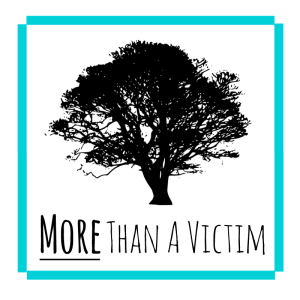I was inspired to write this article after a long conversation with a friend who is a survivor of rape. She’d recently had the misfortune of a “chance encounter” with her abuser and it annoyed her how he’d left that meeting seemingly unscathed whereas she came home triggered and reliving her trauma. Our conversation was charged with frustration as we started discussing all the “stuff” that a survivor is left to deal with post-abuse because there is A LOT of stuff and, to put it politely, it’s not fair.
Here’s 11 things that topped our anger- fuelled chat:
The Ongoing Fear- and Possibility- of Seeing Your Abuser Again: The statistic that reads “almost 90% of those who are raped know the perpetrator*” doesn’t just highlight that we knew our abusers when our experience happened, but that in fact we’ll probably have to keep knowing them. Abusers are often acquaintances, family and friends; they are in our communities and so, unfortunately, this means it’s a real possibility, a likelihood in fact, that we will have to face them again… The question of “when?” Only adds to the trauma and can keep you in state of perpetual fear.
The Actual Moment You See Your Abuser Again: When that initial fear becomes a reality what do you do? Do you scream and make a scene? Or do you keep it all in? But, why should you keep it in? And, if you do keep it in isn’t that proof that the whole experience wasn’t that bad in the first place? These moments not only make you relive the trauma but can trigger a vicious cycle of self doubt, second guessing and feelings of blame.
The Lack of Control that You Have Over Your Abusers Opinions of You and The Narrative They Tell: We both know what happened but… The victim blaming, slut shaming and general bashing of your humanity is debasing to say the least. And, it’s yet another thing out of your control. Also, I don’t know if it’s just me but it really *annoys* me to think that my abuser (ex boyfriend) probably goes around thinking we had a great relationship and tells anyone that cares to ask just that. There was ongoing abuse and manipulation but unfortunately I don’t think that will be his story.
Detaching Yourself from What Happened in Order to Stay Sane Vs. Having an Actual Breakdown: Whichever you choose/ chooses you, the results are pretty hideous. If you detach yourself from your experience people often think you’re “over it” so can be less inclined to support you, they may even start doubting it ever even happened as you’re coping “too well.” But, on the other hand, the hideousness of having an actual breakdown is a pretty self explanatory and has cost people their lives too many times.
Telling People What Happened: Disclosing to your loved ones may be the hardest thing you ever have to do. It hurts you, it hurts them and it hurts you both to see each other hurt. But as well as your loved ones you’ll undoubtedly have to tell one or two other people who “need” to know for “logistical” purposes- like Uncle Bill who lives down the road from your abuser and always thought they were a “nice kid.” It’s another conversation that you feel unprepared for and another person’s feelings you can feel yourself taking responsibility for.
Reconciling All the Memories You Have of That One Person: I still don’t know how to do this- almost a year ago I wrote in my story that I didn’t know how to do this and I’m still no better at it now. If almost 90% of us know our abusers we’ll probably have both good and bad memories of them. And, you could literally drive yourself mad wondering whether the good times were actually good and if all memories can be trusted. Questions lead to more questions and more uncertainty, and you can begin to wonder dangerous things like “If he/she was a good person am I a bad person?”
Feeling Like You Need to be “Over It”: The unspoken time limit you have to heal. Every survivor gets one forced onto them- either by themselves or those around them. It’s in the “If you keep bringing it up you’ll never get over it” and the “Stop dragging up the past” and the most unrelenting: “Can’t I/you just be normal again? Like I/you was before?”
Unfortunately you cannot go backwards, only forwards. You can only be YOU, you and those around need to try to be kind and give you as much time as you need. Time really is a healer and- contrary to popular belief- there’s plenty of it around.
Meeting Another Survivor and Feeling like Your Experience was Nothing Compared to Theirs: Comparison is the thief of joy. In these instances the guilt immediately starts talking to you, “How dare you think you deserve support, look at these strong survivors coping on their own and they’ve been through worse than you!”
Because we don’t feel bad enough already do we? The comparison trap gets us all. Granted almost every survivor I come into contact with says something along the lines of “…But it’s not as bad as some people’s experiences” or “It could have been worse.” Perspective is great, but I want you to know that EVERY experience counts; don’t buy into the mindset that sexual abuse happens on a spectrum, we all deserve support.
Feeling Angry that Your Abuser Changed Your Life: The rage that boils in me when I spot something in my behaviour that I can trace back to him, I can’t even describe it. I feel powerless, it’s like he still has control over my mind and body. But he doesn’t, and if I have to remind myself of this fact continuously I will.
It’s just the thought that they not only took something from you in that moment but literally changed everything from then on- it’s destabilising. But that’s fear talking, you can still do YOU. They do not define you. What happened does not define you. Keep moving forward- even if baby steps are all you can take.
Feeling like Your Abuser Hasn’t Suffered like You Have: Again the rage is undeniable- and I’m really not an angry or unkind person! But feeling like your abuser did everything wrong and got none of the consequences, that could bring out a rage in anyone.
Feeling Good Again… Or Are You? So you start feeling slightly human, a bit like you’re moving forward and yet in the back of your mind you have that nagging thought- “I’m obviously not dealing with this right now so when will I?” And then there’s the fear that it’ll creep up on you when you least expect it and you’ll break down…again. So even when you feel okay it’s like you can’t depend on it lasting. How is this fair..?
So, there it is- my stuff. I’ve written it here because I want every survivor to know- you are not alone and you are NOT going crazy. We all have stuff and I know there’s much more that could be added to the list; I also know my stuff will look different to another survivors stuff but it’s important to note that it’s ALL difficult. It’s all hard, we all experience so much and we deserve to be supported throughout.
If you’re reading this as a “non-survivor” (for lack of a better word) I hope it’ll help you understand that survivors really aren’t just survivors for one moment but for life- treat us with compassion. Although you cannot change what a survivor has endured, you can change the incessant idea that a survivor only survives one event. A traumatic experience is an “experience” for a reason- it’s much more than one moment, it’s a series of awful moments. Unfortunately a traumatic moment, like a rape or sexual assault, sets off a chain reaction of moments which can rule your entire life if you are left unsupported. Many people seem to think, and act upon, the notion that you become a survivor in the instant of the experience and from then on you’re merely moving forwards- onwards and upwards and all that. That is simply NOT true. It is not always hard, but similarly it is not always easy either.
Honestly, I recently suffered a bit of “down time” of my own; a dream I had triggered me and I felt very low, memories of my sexual abuse were on a loop in my mind for about a week. The only thing that eventually helped me was writing a letter to my abuser. And, although I didn’t post the letter, I did share parts of my letter and why I wrote it in an article on my website My Imperfect Rape. I wrote about how the thought of giving some of the pain back to my abuser translated into a glimmer of hope and I wrote about the importance of being vulnerable. I didn’t share this on my project because I needed to fill space or because I wanted to be controversial; I wrote the article because I wanted the survivors and advocates who visit my project to understand that surviving isn’t a one time thing. Surviving is a complex and ongoing process.
In the article I wrote, “as survivors, being vulnerable and open about our sadness is being authentic to our plight. The world- our family, friends and communities- need to see that being a survivor isn’t just about the immediate aftermath of an abusive experience, surviving becomes a daily mission and it’s a struggle sometimes.”
I need you to recognise this struggle- as my fellow survivors, and those supporting and advocating- because honestly being a survivor of abuse can feel like a full time occupation sometimes (an occupation that NO ONE wants.) We would all do well to respect this because as survivors we can rush ourselves into getting “back to normal” and as loved ones we can do the rushing. Don’t hurry backwards, take small steps forwards instead. Support yourself and those around you continuously, and maybe refer back to articles like this one that remind us all that sexual abuse is messy and that includes the “getting past it” part.
—
Helen Alison is the creator of the My Imperfect Rape project which gives survivors a safe space to share their stories as well as creating tools that help everyone start the right conversations about sexual abuse. Visit: http://www.myimperfectrape.com
* Full statistic (and more) can be found at http://rapecrisis.org.uk/statistics.php
52.486243
-1.890401









